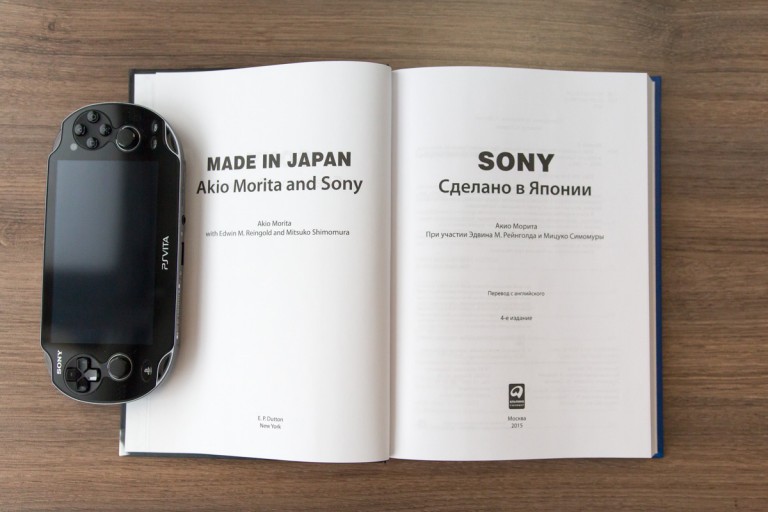Sony. Made in Japan
A very good first-hand book. Akio tells about the formation of SONY after the end of World War II until about the mid-eighties.

After reading it, I'm once again convinced that startups need not designer coworking spaces and smoothies, but harsh conditions and a threat to life. Here's one episode from the history of "Tokyo Tsushin Kogyo," the future SONY. When Ibuka and Akio decided that their main product would be a magnetic tape recorder, they began to look for what to make this tape from. They had neither the necessary plastics nor materials for coating. They experimented for a long time with cellophane and magnets ground into powder. Nothing came of the cellophane, they began to try paper, cutting it into strips with razors on the floor. The powder from magnets, apparently obtained with files, turned out to be too strong in its properties. Kihara, another talented engineer who worked with Ibuka and Akio, stumbled upon iron oxalate. When burning oxalate, iron oxide could be obtained, and this was exactly what was needed. They didn't have a furnace, so they prepared the powder in a frying pan, determining readiness by the color of the mass. They applied everything to paper manually. With brushes made of raccoon belly wool, because the sprayer didn't give the desired result. In general, the guys were creating miracles from shit and sticks in a half-destroyed basement.
Akio talks a lot about SONY's philosophy. A family atmosphere is created in the company. Workers and management almost always sit in the same room. When hiring employees, they don't pay attention to diplomas, only to personal qualities. After a person is hired, they should never be fired under any circumstances. If things are going badly somewhere, people are retrained and directed to other jobs. A salary increase is given not with a new position, but with the growth of experience. Usually, salary is reviewed annually.
A lot of attention is paid to US-Japan relations. Morita likes to set the Japanese way of thinking and acting as an example. Not being afraid to criticize the crooked places in the approach to business in the US. Where lawyers stand behind everyone. And without a lawyer, almost nothing is possible. Akio condemns the desire of Western companies to maximize profits here and now, rather than making long-term decisions. As a result, some companies, instead of producing and selling goods, themselves become the object of trade. Speculation in the stock and currency markets, all this is considered a perverted form of earning money.
In general, the book is definitely worth reading. And if you're going to work/business/rest in Japan, then it's mandatory reading.